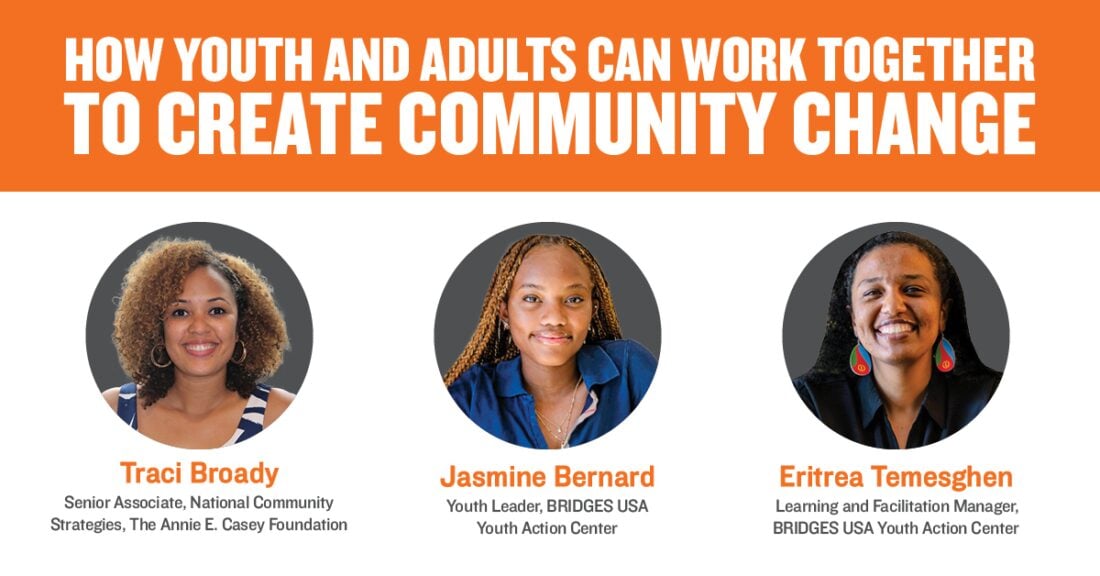Deepening Intergenerational Partnerships in Community Work
An Instagram Live Conversation

To help advance community-led solutions that improve the lives of young people and their families, the Annie E. Foundation launched an intergenerational learning collaborative of community-based organizations in 2022. Now in its second phase, the collaborative is testing strategies for strengthening the role of young people in community change efforts.
During an Instagram Live conversation, recorded on Oct. 29, 2024, Casey’s Traci Broady spoke with Jasmine Bernard and Eritrea Temesghen from BRIDGES USA, an organization that serves as a technical assistance provider for the collaborative. They shared more about the collaborative and highlighted best practices to create equitable partnerships between youth and adults in organizations and communities.
Watch the conversation on Instagram
The intergenerational learning collaborative comprises Casey grantees, partners and community groups. The collaborative works in phases to better understand and improve youth-adult partnerships that engage in community change efforts. Insights from the collaborative will be used to develop tools and resources covering topics such as navigating productive conflict, addressing generational barriers and youth compensation that will help refine the Foundation’s grant making strategy and support the broader field of intergenerational community change work.
Current participants in the collaborative include:
- CLIA, Baltimore, Maryland
- Gente Organizada, Pomona, California
- The Lighthouse | Black Girl Projects, Jackson, Mississippi
- Voices for Virginia’s Children, Richmond, Virginia
Over 18 months, the four organizations will implement guides, tools and evaluation practices to improve their organization’s youth engagement and outcomes for youth and families in their communities.
The current phase of the learning collaborative builds on listening and learning sessions with an intergenerational selection of Casey grantees and partners with expertise in youth-adult partnerships. The group met over two years to identify key areas essential for designing and implementing intergenerational engagement and co-create resources to be tested by organizations looking to start or strengthen their intergenerational community engagement efforts. Feedback from the organizations testing the resources will be used to finalize a tool kit for community-based organizations, local governments, funders and community leaders.
Learn about the early lessons from this intergenerational engagement effort






